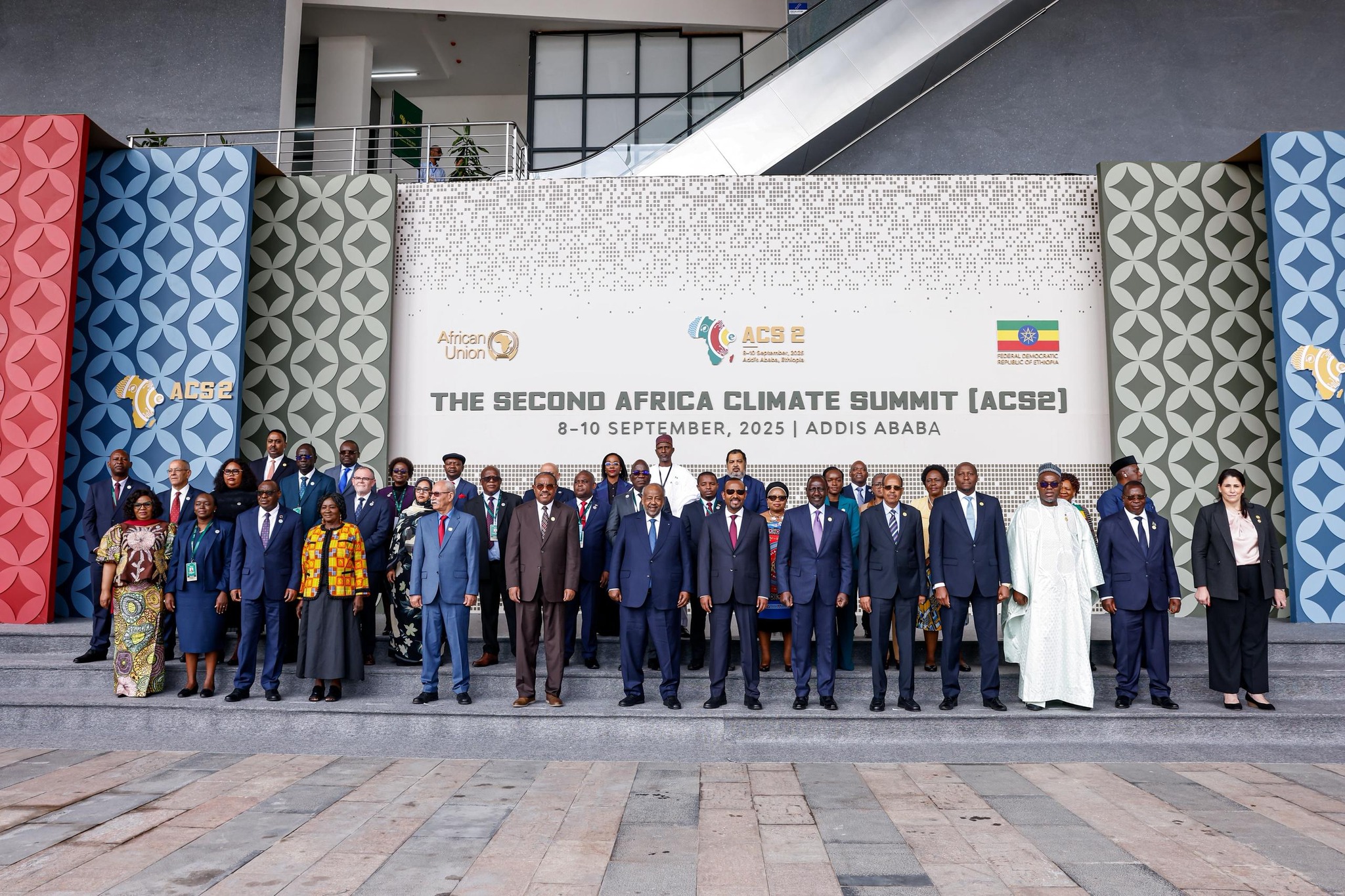PM Abiy’s Africa Climate Innovation Compact, African Climate Facility Established at Conclusion of ACS2 - ENA English
PM Abiy’s Africa Climate Innovation Compact, African Climate Facility Established at Conclusion of ACS2

Addis Ababa, September 11, 2025 (ENA) - The Africa Climate Innovation Compact (ACIC) and the African Climate Facility (ACF), were established under the initiative of Prime Minister Abiy Ahmed of Ethiopia at the Second Africa Climate Summit (ACS2) held in Addis Ababa.
At the close of ACS2, the African Leaders Addis Ababa Declaration on Climate Change and Call To Action was also officially adopted, heralding a historic moment that puts Africa at the forefront of global climate action, according to a joint press statement.
ACS2 was hosted by Ethiopia in collaboration with the African Union under the theme: “Accelerating Global Climate Solutions: Financing for Africa's Resilient and Green Development”.
The final day of ACS2 concluded with a clear call to position Africa, not as a mere victim of climate change, but as a driver of solutions and the next global climate economy, the release underlined.
The Leaders Declaration called for "strengthened and sustained support to scale up the implementation of African-led climate initiatives such as the African Union Great Green Wall Initiative, the African Forest Landscape Restoration Initiative, and the Ethiopian Green Legacy Initiative.
African leaders and partners of Africa pledged for financial and innovative commitments to the continent for the implementation of African-led solutions, including.
The Africa Climate Innovation Compact (ACIC) and the African Climate Facility (ACF), were established under the initiative of Abiy Ahmed, Prime Minister of Ethiopia, committing to mobilize 50 billion USD annually in catalytic finance to champion climate solutions that accelerate innovation and scale local climate solutions across the continent.
The Compact aims to deliver 1,000 African solutions to tackle climate challenges in energy, agriculture, water, transport, and resilience by 2030.
Leaders were clear that adaptation finance is the legal obligation from the developed world, not charity. Africa stressed that adaptation finance must be delivered in the form of grants, not loans that worsen already fragile debt burdens. To correct the imbalance of the climate finance in Africa, a landmark deal was struck to operationalise the long-awaited African Climate Change Fund, supported by the African Development Bank, which will channel green bonds and innovative financing instruments built for Africa’s realities.
Heads of State and Government spoke with one voice in demanding urgent reform of multilateral development banks to lower borrowing costs and expand African representation in global financial governance.
The Government of Denmark announced 79 million USD for supporting agricultural transformation.
African financial institutions such as AfDB, Afreximbank, Africa50, and AFC signed a landmark Cooperation Framework to operationalise the Africa Green Industrialisation Initiative (AGII), backed by 100 billion USD mobilised for green growth and aiming at transforming Africa’s renewable energy, resources, and industries into a climate-smart growth engine.
The Government of Italy reaffirmed its commitment to its pledge of 4.2 billion USD to the Italian Climate Fund, devoting about 70% of this to Africa.
The second phase of the Africa Adaptation Acceleration Program (AAAP) called on partners to collaborate actively in AAAP 2.0, which aims to climate-prepare Africa’s food systems, future-proof infrastructure and urban zones, seeking $50 billion investment and unlocking resilient finance at scale by 2030.
Leaders further called for Africa’s share of global renewable energy investments to rise from a meagre 2% today to at least 20% by 2030, a shift that would finally reflect the continent’s potential as a renewable energy powerhouse.
The Summit pushed for the Green Minerals Strategy, a blueprint to ensure that cobalt, lithium, copper, and rare earths fuel not only global clean energy supply chains but also local beneficiation, job creation, and industrialisation.
Leaders pledged to establish dedicated financial mechanisms for addressing climate-related health threats, from deadly heatwaves to the spread of vector-borne diseases.